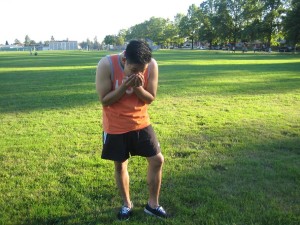Individuals who have summer allergy-induced asthma often feel wretched during this time of the year when they want to spend time outdoors. Many spend a lot of time outdoors by engaging in various sports or spending time out in the beach. As the days of summer arrive, these individuals have to deal with annoying symptoms such as wheezing, sneezing and coughing. The symptoms can affect the daily activities of the individual at work, school or home. It can even ruin a vacation spent outdoors. Remember that it simply means that the quality of life of the individual is affected by these symptoms once the summer season arrives.
Take note that some allergy-induced asthma triggers problems all year round since it is triggered by substances present in the daily environment. Some individuals only deal with the symptoms at certain times of the year. The common symptoms of summer allergies and asthma include the following:
- Nasal stuffiness
- Sneezing
- Runny nose
- Itchy, watery or burning eyes
- Wheezing
- Itchy mouth or throat
- Coughing
- Chest tightness
- Difficulty breathing

Common allergens or triggers during summer
The common summer allergens or triggers are grass pollen. The pollen are miniature, egg-shaped male cells present in flowering plants that are used during the fertilization process. Various kinds of grasses can generate pollen capable of triggering allergies and asthma symptoms. The common grass allergens include the following:
- Bluegrass
- Bermuda grass
- Timothy grass
- Orchard grass
- Sweet vernal grass
- Red top grass
Up towards the end of summer, the weed pollen present in the environment becomes an issue. The pollen from these plants tends to increase in level during late summer and fall. Some of the common weed allergens include the following:
- Ragweed
- Sagebrush
- Pigweed
- Tumbleweed
- Russian thistle
What are the influencing factors?
The type of pollen that triggers asthma and allergies is a lightweight, airborne powder. This is why it easily spreads far and wide during windy days. During rainy days, the rain washes away the pollen spores and the pollen count is lower which provides relief to the symptoms.
This is why individuals with summer allergies and asthma should check the pollen count before going outside. It is best to avoid the outdoors during windy days where pollen is likely to be abundant in the air. After a rain, the pollen count is reduced and the suitable time for the individual to spend time outside.
Diagnosing summer allergies and asthma
Once you notice that the asthma and allergy symptoms worsen during the summer season, there is likelihood that the individual has summer allergy-induced asthma. Consulting a doctor is vital so that allergy testing can be performed to determine the exact allergen he/she is allergic to. The testing is performed to pinpoint the exact trigger whether it is grass pollen or weed pollen as well as other possible triggers present during the summer season.
